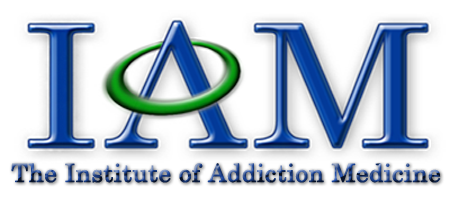Dealing with ADHD is difficult enough for most people, but the path becomes considerably murkier once drugs and alcohol enter the equation. Studies show that it is a difficult subject to condense into a black-and-white model. As much as we can, lets unpack the connection between ADHD and addiction and how we can help individuals that have a co-occurring disorder.

While some clear links have been established between ADHD and substance abuse, there is still some debate on exactly how and why ADHD contributes to addictive behavior, regardless of whether we are talking about alcohol or hard drugs.
What we do know is that the impulsiveness, possible questionable judgment, and social anxiety that are most associated with ADHD probably make it easier to fall into the addiction trap.
Is ADHD Linked to Addiction?
There is compelling evidence that alcohol and drug abuse are both more common for people who have been diagnosed with ADHD. While about a quarter of adults being treated for alcohol and drug abuse also have ADHD, the links between ADHD and substance abuse are actually drawn from childhood, as teenagers with ADHD are far more exposed to addiction risks than any of their peers without the condition.
Even if the alcohol and substance abuse does not actually begin during their teenage years, there are strong indicators that children with ADHD will encounter some form of addiction as adults, although we should make it clear that not everybody with ADHD will develop a substance use disorder.
Each person is unique and so is how they work through an ADHD diagnosis as well as what their family history and social background looks like.
Are People With ADHD at Higher Risk of Addiction?
Often people with ADHD are more vulnerable than neurotypical substance users because it may have origins in “helping improve their mood, sleep patterns, and quality of sleep.” There is a strong mental health component to addiction and its links to ADHD, which is why treatment requires a more holistic approach.
This very legitimate need to calm an active brain can quickly spiral into an uncontrollable addiction. This is one reason it is important to make young people with ADHD understand that tinkering with any kind of substance can be extremely dangerous—the emotional and psychological hold can be powerful.
Can People with ADHD Get Addicted to Their Meds?
Getting treatment for ADHD is important, primarily because it helps individuals manage the condition. But some might be concern of addiction issues with ADHD medications.
Other studies have maintained that ADHD medication is not a gateway drug, whether that be stimulants, cognitive enhancers, or antihypertensive medicine.
The evidence suggests the greatest risk of addiction is actually posed to sufferers who have not been diagnosed with ADHD at all.
Can Untreated ADHD Cause Addiction?
Untreated and undiagnosed ADHD is actually the most likely scenario for alcohol and substance abuse that is linked to individuals with ADHD. The relief from substances such as alcohol or illicit drugs become a powerful form of self-medication. An undiagnosed person with ADHD may find solace in substances without knowing exactly why their particular brain needs the respite in the first place.
While falling into addiction is usually quick for the untreated and undiagnosed, overcoming it can be exceedingly difficult for that very reason. That said, treatment is always an option.
Addiction treatment centers such as the Volpicelli Center for addiction treatment offer medication-based treatment that has significant evidence to support its use.
You are more than your addiction.
Allow our evidence-based addiction recovery program
to fully support you so you can live fully.
